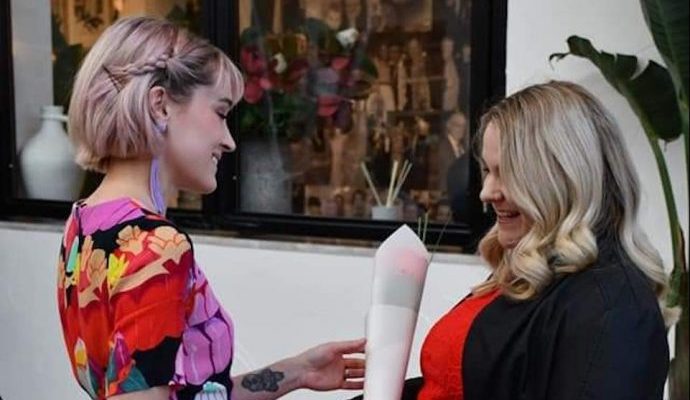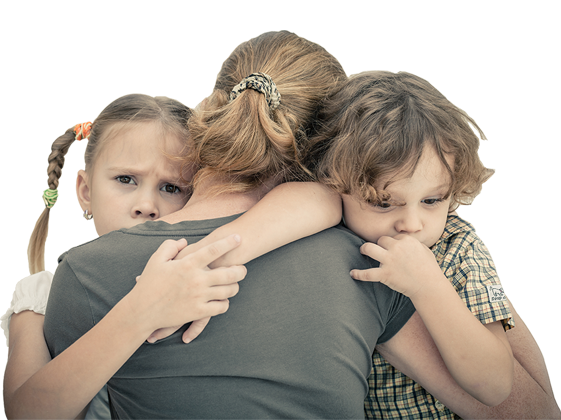PROGRAMS FOR CHILDREN
Our programs help children from 5 to 17 years who have come from a domestic violence situation. These programs include help with the transition into a new school, homework clubs or a camp which helps children heal from trauma.
BRIGHT START

Our first program focuses on helping children transition into new schools when relocating from a domestic violence situation.
Through referral from recognised DV service providers, our team of qualified, registered and highly experienced teachers provides support to families by
- Working with the family before, during and after the enrolment process at our Centre, or through Outreach, to determine the specific needs of each child.
- Liaising with Education Department representatives to explore the most appropriate school placement and support for the child, with the option to arrange and attend the enrolment meeting with the family.
- Determining the physical items that each child will need to start school- uniforms, book list items and contributing to the cost of these items to ease the financial burden on families.
- Liaising with the school to ensure that any risks to the child’s safety is fully understood and that a Safety Plan is implemented, if necessary.
- Providing an ongoing point of contact for the family and school to ensure the children can continue their education in the safest and most supportive environment possible, thus ensuring the best possible chance of long-term success.
- Since January 2018, we have supported many families to relocate children to new schools and to provide advocacy for families when issues arise at schools, with positive outcomes achieved through this process.
HOPE 4 LIFE PROGRAMS

The Hope 4 Life program focuses on providing early intervention and support to young people, aged 8-13 years, who have experienced domestic and family violence. The goal is that through participation in the program activities and therapeutic supports, young people will receive the benefits of increased hope and resilience, ultimately, decreasing incentive of engaging in high-risk behaviours, including crime.
Access to age-appropriate and specialist therapy, continued encouragement to participate in education and learning, and role modeling a healthy connection to community are key elements of the holistic services provided to meet the needs of young people engaged in Hope 4 Life.
Hope 4 Life program development has been modelled on three Pillars of support (Education and Training, Health and Wellbeing, Social Connections and Support) and a trauma-informed framework that work in combination to achieve holistic wraparound services that promote positive decision-making, increase resilience, and support the positive trajectory of a young person's life following impacts of trauma.
The program has been developed based on contemporary research completed, recommendations made by Grifith University and Australia's National Research Organisation for Women's Safety (ANROWS) specific to young people's experience of domestic and family violence and the service and support needs. Based on research and evidence, the Hope 4 Life program can make a real difference.
H4L CAMP
HOPE 4 Life is an evidence-based, curriculum-based program, with research provided by Griffith University
The Program consists of an intensive four-day camp each year, followed by monthly activity-based catch-ups, with a focus on the rebuilding of HOPE as a major pathway to future success. Other focus areas include healthy/respectful relationships and regulating emotions, with input from the Department of Education Specialist Behaviour Team.
Camp Mentors, from Human Services, Education, Health & Law Enforcement (professionals & undergraduates), work intensively with the children throughout the camp through “challenge by choice” adventure activities, group discussions and workbook tasks.
Children are referred to our HOPE 4 Life Program through DV organisations
In 2019, our pilot HOPE 4 Life camp, involving 19 children and 13 Mentors was an overwhelming success with reported increases in hope and resilience for all participants.
H4L HANGOUT

Monthly catch-ups give children the opportunity to reconnect with peers and Mentors on a regular basis.
Children revisit concepts covered at camp (SMART goal setting, Respectful Relationships and Regulating Emotions) through a “check-in” with Mentors and discussion with peers.
Children have the opportunity each month to engage in indoor activities (eg drama, art, technology, cooking) or outdoor sporting activities (with elite sportspeople).
A shared afternoon tea finishes off the session
Activities are run from our own facility on a Saturday.
H4L HOMEWORK CLUB
As an addition to our HOPE 4 Life program, we are now partnering with Griffith University’s Education Faculty to deliver this new program in 2020.
Preservice teachers, with additional training in trauma-informed practices, will volunteer to tutor children who have fallen behind in their schooling, as a result of DFV, once a week.
This is a win-win for the preservice teachers, who will gain valuable experience working with traumatised children and for the children, who will receive additional support to improve their learning and will have an additional positive mentor on their lives.
The Brisbane Lions Football Club will also be involved in this program, which will be run from our facility.

PEACEFUL KIDS
An eight-week group program to enhance emotional resilience.
It teaches children mindful and positive psychology skills to help lessen their anxiety and stress.
PROGRAMS FOR WOMEN
Women are provided opportunities to regain their self confidence and reach their full potential. From just having time out to heal with out morning teas, workshops or pampering to gaining financial independence, you will find a program to suit your specific needs.
TIME OUT

This program encourages DV survivors to take some time out of their busy, often stressful, lives to focus on their own healing.
Personal Development workshops are run throughout the year, which give DV survivors the opportunity to rebuild their self-confidence, develop new support networks and regenerate hope for their new lives and for the fulfilment of their individual potential. All workshops are free of charge and are limited to 20 participants.
Delivered over three half days (in school time), topics covered include- goal setting, effective/assertive communication, job readiness and career options, personal image and style, basic skincare, makeup and haircare and healthy life habits- simple exercise routine & meditation/relaxation techniques. Topics are delivered by experts, who donate their time as presenters.
The ladies receive many take-home items, generously donated by local businesses. These include- full skincare & make up kit, haircare kit, yoga mat, new & pre-loved clothes & accessories.
The Time Out Program is delivered from our own facility. Child-minding is provided free of charge.
In the week following the completion of the workshops, the women celebrate the beginning of their new, independent lives by receiving a makeover from the Stefan team, followed by attending an ‘Empowerment Lunch” with other DV survivors and community members.
Women can be referred to the Time Out Program through DV organisations or through self-referral (acceptance into program based on interview with Beyond DV).
Since July 2018, DV survivors across the Greater Brisbane Area have participated in our Time Out workshops, with every participant reporting increased confidence and reduced feelings of isolation. They refer to being able to see a “light at the end of the tunnel”- HOPE is alive!

EXTRA TIME OUT

A follow-on from our Time Out program, providing opportunities for DV survivors to consolidate and grow support networks with each other
After completing our Time Out workshops, participants are invited to fortnightly peer support morning teas at our facility.
Each month, a guest speaker joins the morning tea to educate and further empower the women across a wide range of topics including financial counselling, legal matters, self-defence, cooking/healthy eating, mental health, aromatherapy, yoga/meditation, dance, massage therapy, writing and many more.
PATHWAYS TO HOPE

Our newest program, commencing in 2020, will give every woman who participates in our Time Out program, the opportunity to build financial independence.
Elements of the program include;

THE WELLNESS PROGRAM

A six-week Group Therapy & Psychoeducation program created by our DV Counsellor after listening to the needs of individual clients. Supported by peers and covering topics including boundary settings
How Can You Help?
Beyond DV has a number of ways that businesses and individuals can help us provide these life changing service programs to the survivors.

